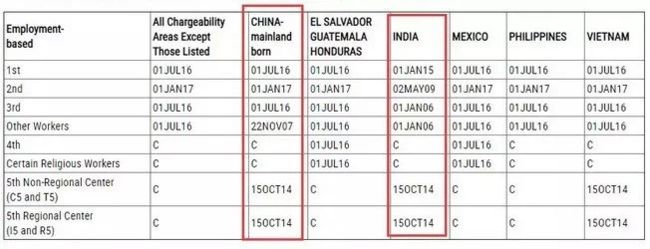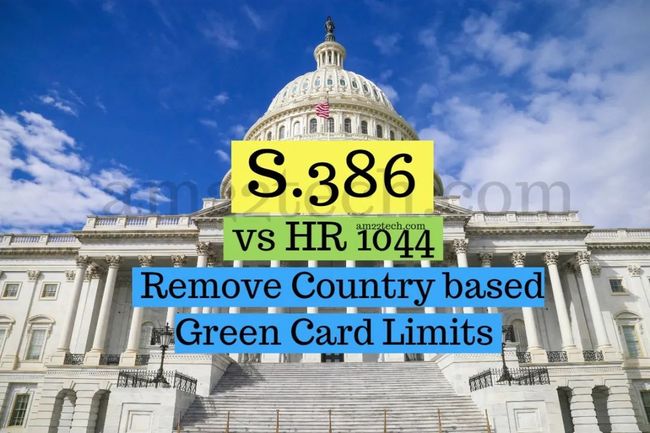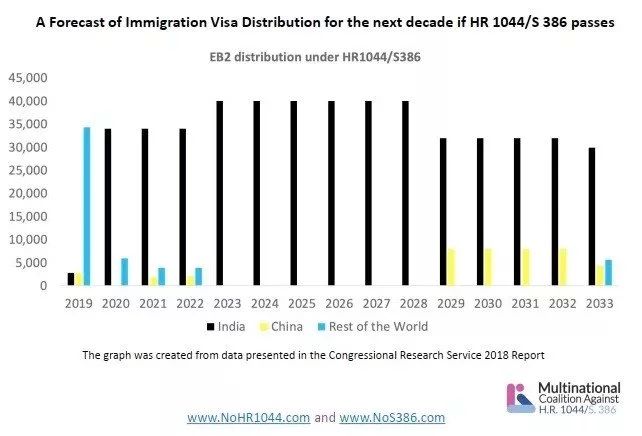取消中国职业移民配额?绿卡改革法案S386卷土重来,H1B很受伤
![]()
èé°èéS386·é
@TerryLèImmigration Voice èèDurbinè訨訨¤°#DurbinLiesImmigrantsDie èhashtag°±è°¨èèDurbinè·¤§è·è·è
èpatch±è
é·é
S386
S386é±èéèMike Lee¨201927éèèéHR 1044觰2019駰
H.R.1044§°§°Fairness for High-Skilled Immigrants Act of 2019觰°è°14èè觰éé 7% é¤é±°éé¨è·ééè20¤
觰é駰è·è·è±
7%éé3èéè
2020è°¤¤§è·¤EB-2EB-3EB-5±ééè°15%
-
2021è2022è°¤¤§è·¤EB-2EB-3EB-5±ééè°10%
202020212022è°èèè°25%
é°°èèè°2%
202020212022èEB-2EB-3EB-5±éééèèè85%
±§°èééé7°15
-
é¤è§°°1000ééè§
H1B¤
éè±
°èéèéè°¤è
Qéèè°¤è°
AéEB2/3, è°è·èéEB5è·è 餰§°è·è·°èè7%ééé觰褧éè·è¤è°è°±
 ¤§éè·EB-2EB-3¨8è¨20162017è°è·20092006觰±éé褧駰èè·¨éèè±è·èéé
¤§éè·EB-2EB-3¨8è¨20162017è°è·20092006觰±éé褧駰èè·¨éèè±è·èéé
EB-5èH.R.1044¤§è±è·°¤°¨èéééé°è·¨è¤é¤§èéèèè·§°§
è·°
èè褧¤°H1Bè·èè¨è¤éèéèè¨è¨èHR1044§è± è °¨èéè§ 1. ¨¨ètrending hashtagtrendingè°¤°éèéééabusiveharmfulè Image for post
2. ¨èhashtagfake accountééfake accountéè· https://bit.ly/32Wc6Cq
3. ¨Durbin¨èè¨è·±¨èè·èèfake account è¨èè·¨hashtag #NoS386#S386IsNotFair#ImWithDurbin
4. ¨è·Durbinemailè°§°è 餧¨
Dear Representative (Senator) XX,
Legislative Bill HR 1044, Fairness for High-Skilled Immigrants Act of 2019 is one of the most controversial, yet potentially damaging legislation in Congress. This legislation favors only one country, encourages H1b abuses, and allows it to completely co-opt the entire Employment Based Green Card program.
A YES VOTE or co-sponsoring HR1044, Fairness for High-Skilled Immigrants Act of 2019, would effectively wipe out ethnic diversity in the skilled legal immigration system and be detrimental to the vital interests of the USA.
While sympathizing the long backlog that immigrants origin in India are currently suffering, I believe HR1044 will only make the situation worse because:
It does not increase the quota of legal immigration, but only redistribute it among Indian immigrants and immigrants from the rest of the world.Currently, there are 466K Indian nationals in the backlog (per CRS Dec 2018 report in EB/2), so it will take about 12 years for these applicants to receive their GC. As a result, every new applicant from the rest of the world will be thrown into an overnight 12-year wait.
HR1044/S386 encourages H1b abuse, which is disastrous for nearly everyone except for multinational tech giants and outsourcing companies, who are utilizing the H1b as well as the EB2/3 programs to exploit cheap labor from other countries. Due to the institutional support from outsourcing companies, it has been much easier for the outsourced personnel to enter the EB2/3 queue compared to people who come to study and file green card application after they have landed a job in the US. As this bill does not have any clauses to restrain H1b abuse effectively, passing it will encourage more H1b abuse, which benefits the tech giants but worsens the situation of local workers. It also kills the dream of most foreign nationals (including Indians) seeking to immigrate to the US via fair market competition rather than through outsourcing companies. With this bill passed, it will become even harder and almost impossible to survive a chance if they have to compete individually against the outsourcing companies.
-
HR1044/S386 will effectively wipe out ethnic and skill/industry diversity from other countries for more than 12 years as only Indian nationals will receive EB GCs in a first-come, first-serve waiting line. Indian nationals constitute about 17% of the worlds population & about 17% of the international students; but at the same time, they receive about 75% of H1B visas AND 55-60% of PERM Labor Filings. Effectively, Indian nationals DOMINATE the H1B & PERM Labor Certification process, essentially crowding out foreign nationals from 190+ other countries! The 7% country caps is the only measure curtailing the absolute monopolization of the EB Green Cards by India.
If HR1044/S386 is passed, the Employment-Based immigration program will become an Indian-First, Indian-Only program, which eliminates any possibility of an ethnically & culturally diverse immigration community.
-
HR1044/S386 has a profound negative impact on universities in the US. Partly contributed by H1b abuse, many Indians in the US work in the IT sector and have only a Bachelors degree from universities in India. HR1044/ S386 will effectively prioritize applicants with foreign undergraduate degrees over US PhDs & Masters degrees. This will cause more talents, including those from India, to avoid studying in the US since it does not pay off. Furthermore, because the majority of MDs and RNs are NOT from India, this bill will lead to sudden and critical shortages in underserved areas.
On the other hand, I think there are much better ways to solve the backlog program without the catastrophic side effects as listed above.
For example, the current bill puts an 85% cap on each country, which may cause one country to monopoly the system. However, if we set this ratio to a more modest number, e.g. 15%, it is still higher than the current quota, thus processing the backlog faster, but will not come at the cost of all other nationals and will not encourage H1b abuse and outsourcing in the way that the current bill does.
Furthermore, I firmly believe that the bill will serve its purpose ONLY AFTER ending the H1b abuse. Any laws and/or regulations on immigration/visa quota is likely to be abused by outsourcing companies if we pass them without ending the abuse. If we increase the quota, they are likely to exploit more cheap labor. If we redistribute the quota, they are privileged in helping more cheap labor in the tech industry to get into the queue that originally is designed for all employers and immigrants. We have to identify and stop the abuse before anything else, while HR1044/S386 just ignores this critical issue.
Finally, I agree that we should address the backlog problem that Indian immigrants face, yet a special deal to help them who are already in the queue is better than an institutionalized pathway benefiting only tech giants and outsourcing companies at the cost of everyone else in the long run. An amnesty bill could help clear the backlog, but we should not encourage more outsourcing and H1b abuse just to give green card to the people who are already in the queue.
Above are my arguments against the HR1044/S386 bill. I urge you to vote "NO" to the bill until it addresses all the above issues. Our immigration system should not be abused and we should act to protect the diversity of our immigration community.
Thank you and looking forward to your reply!
Yours sincerely,
XXX
è@1point3acres.com ±è
±é±èè±è訷èèèè°èè
°¨Shirmy
¤§é±
![]()
![]()


